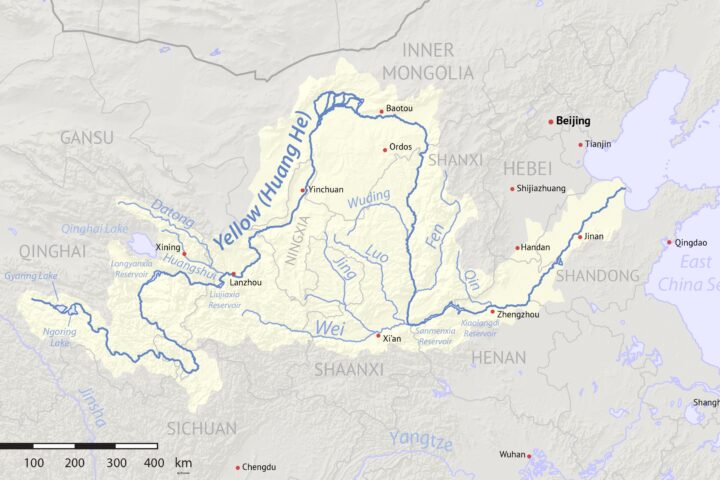Source: pexels-markus-winkler-1430818-Photo by Markus Winkler _comphotoa-typewriter-with-a-paper-that-says-quantum-computing-18498316
Quantum computing, with its disruptive technology harnessed from the principles of quantum mechanics, can disrupt a number of industries, from cryptography to drug discovery. While such applications are wide-ranging and very promising, the geopolitical implications of quantum computing are equally significant. As this technology continues to evolve in the future, it is most likely to reshape the global landscape and influence everything from international relations to the dynamics of economic power.
Understanding Quantum Computing
But to begin with, let us get a basic grasp of the science behind quantum computing before we delve into the geopolitics involved. Quantum computers are quite different from classical computers. While classical computers represent information in two forms – 0 or 1 – through bits, quantum computers, too, function using something called qubits. However, unlike bits, they can be in many states simultaneously, a phenomenon described as superposition. This property allows them to compute complex calculations at incredible speeds compared to classical computers.
The Disruption of Encryption
The most worrisome issue with regard to quantum computers is that they can break through existing encryption. Many encryption algorithms have based their security on the problem of factoring large numbers, which is difficult for classic computers. Such quantum computers, using algorithms like Shor’s algorithm, could factor these numbers relatively easily and therefore break existing encryption methods.
This has huge implications for national security, financial systems, and online privacy. Governments and corporations are racing to develop quantum-resistant encryption algorithms that can keep their sensitive data safe. The development and adoption of such new algorithms are likely to require international cooperation and standardization efforts.
Intelligence Advantage and Espionage
Breaking encryption could also give one nation an overwhelming advantage in intelligence. A state developing the first quantum computing may intercept and decrypt communications, gaining access to highly valued information about their adversaries. That may put nations in an escalatory struggle for developing their quantum capabilities to counter the possible threats.
Moreover, the advent of quantum computers will further accelerate espionage activities to a high degree. Quantum sensors will improve secret observation techniques, and quantum communication networks will open up new channels for secure sending of very sensitive information. In these lines, this forms a challenging task ahead for intelligence agencies and law enforcement agencies.
Economic Implications
It is further expected that quantum computing is going to revolutionize industries, having huge economic implications. Quantum computing, for example, can speed up drug discovery, materials science, and optimization problems. Any country that manages to acquire this technology will have an upper hand in those industries.
Research and development of infrastructures are also overly expensive for quantum computing. In this kind of situation, countries with limited resources may not be able to match up with technological advancement. This can increase the digital divide and can fuel existing economic disparities.
Geopolitical Power Dynamics
This quantum computing may also alter the geopolitical balance of power. The more advanced a country’s quantum capabilities, the greater its relative geopolitical power and influence are likely to be. Indeed, such nations will be able to take control of important infrastructure—communication networks and financial systems.
This could open the doors to a new era of great-power competition where nations vie for dominance in the quantum technology race. At the very least, international cooperation will be needed to prevent the misuse of quantum computing and to share its benefits equitably.
International Cooperation and Governance
This is going to need cooperation at the international level in order to face the challenges and seize the opportunities that quantum computing has in store. Standards, guidelines, and best practices will be developed in cooperation with governments, research institutions, and industry leaders.
International institutions, such as the United Nations and G7, can play a very important role in facilitating cooperation and responsible development regarding quantum technologies. They can also be helpful in addressing questions related to security, privacy, and economic development.
Ethical Considerations
Quantum computing raises ethical concerns during its development. The potentials for possible misuse of this technology into, say, cyber warfare or surveillance have to be taken with high caution. The establishment of ethical frameworks and guidelines is thereby critical to ensure that quantum computing benefits humankind.
Quantum Computing and Arms Races
Deriving from that fact, the tremendous effects quantum computing will have on encryption spell great implications for military capabilities. The quantum algorithms resistant to the attacks could provide a strategic advantage for countries developing them, in making their communications at least a little safer. On the other hand, quantum computers that are running faster than the standard of contemporary encryption may see a potential race.
Quantum technologies could bring about costly offensive and defensive capability investments on the part of nations. This could include quantum-based sensors for early warning systems, quantum communication networks, or even quantum algorithms for intelligence analyses. This arms race would raise tension and therefore the risk of conflict.
Quantum Supremacy and Technological Leadership
The quantum supremacy quest has arisen as one of the central foci in the push for developing a new era of quantum computing: the creation of a quantum computer able to perform a task that cannot be done with any classical computer. Success in attaining quantum supremacy could yield not only technological benefits but also an economic advantage.
More importantly, quantum supremacy attained countries will have an extra advantage over others in most industries, including material sciences, pharmaceutical investigations, and artificial intelligence. They can also develop some new military technologies and intelligence capabilities. This could, in turn, lead to a change in the global balance in power and in influence.
Quantum Computing and International Relations
Quantum computing development can fundamentally change the view of relations that will mark international relationships with countries either joining their efforts or competing, driven by national priorities and interests.
Collaboration would imply working on research and development, establishing international standards, and addressing the ethics and security concerns posed by quantum technologies. Yet it could also be replaced with competition, where countries would struggle to keep the edge in technologies related to quantum affairs and protection of their national interests.
The Role of Emerging Powers
Other emerging powers like China and India are joining the race and pumping millions into quantum computing research. Their rapid development in this regard would most likely shake the firm foundation so far enjoyed by the West. This could result in new geopolitical alignments and cooperation, and with this, increased rivalry over resources and a struggle for power.
The Future of Quantum Computing
But if the future of quantum computing remains an uncertainty, what remains quite clear is its potential to actually change the world. Repositioning the uncertain future research and development should take into account security, privacy, and economic development.
This way, international cooperation and collaboration will help quantum computing to respond to the challenges and opportunities. Serving humankind’s interests by deploying this technology will require joint efforts on the part of governments, researchers, and business leaders.
Conclusion
There are broad and complicated geopolitical implications for quantum computing, from arms races to economic competition. According to such views, this technology will fundamentally alter the face of the world. As we go on and on about the endless possibilities that quantum computing can bring, let us not forget the ethical, security, and economic consequences that go with it.
International cooperation, funding for research, and adherence to ethical guidelines may help in the securing of quantum computing, which has a huge potential for the benefit of all in society.
Sources:
- https://r.search.yahoo.com/_ylt=AwrKAQ8gdsVm3QQAAIG7HAx.;_ylu=Y29sbwNzZzMEcG9zAzEEdnRpZAMEc2VjA3Ny/RV=2/RE=1725426465/RO=10/RU=https%3a%2f%2fmedium.com%2fdiscourse%2fthe-geopolitics-of-ai-and-the-quantum-revolution-cb6f59398b2b/RK=2/RS=6TdWXKCcMJ72yndhH6lr2e6Jha0-
- https://r.search.yahoo.com/_ylt=AwrKAQ8gdsVm3QQAAYG7HAx.;_ylu=Y29sbwNzZzMEcG9zAzIEdnRpZAMEc2VjA3Ny/RV=2/RE=1725426465/RO=10/RU=https%3a%2f%2fwww.nato.int%2fdocu%2freview%2farticles%2f2021%2f06%2f03%2fquantum-technologies-in-defence-security%2findex.html/RK=2/RS=xXqRO6Z5suU7SwXObCyX41.F5VY-
- https://r.search.yahoo.com/_ylt=AwrKAQ8gdsVm3QQACIG7HAx.;_ylu=Y29sbwNzZzMEcG9zAzMEdnRpZAMEc2VjA3Ny/RV=2/RE=1725426465/RO=10/RU=https%3a%2f%2fthediplomat.com%2f2023%2f06%2fthe-security-implications-of-quantum-computing-and-indias-national-quantum-mission%2f/RK=2/RS=3J2yhoEJAhWKWoR4BWS4l8iAS2I-
- https://r.search.yahoo.com/_ylt=AwrKAQ8gdsVm3QQAFoG7HAx.;_ylu=Y29sbwNzZzMEcG9zAzUEdnRpZAMEc2VjA3Ny/RV=2/RE=1725426465/RO=10/RU=https%3a%2f%2fthequantuminsider.com%2f2022%2f09%2f27%2fquantum-matters-a-geopolitical-challenge-of-quantum-proportions%2f/RK=2/RS=64lT9ahFYrae8Iyo2Ra57itMZLA-

















